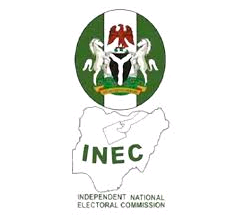Customs CG, Adeniyi Advocates AI Integration in Governance, Tasks Journalists on Accountability

The Comptroller General of Customs, CGC Bashir Adewale Adeniyi, has called for the adoption of Artificial Intelligence (AI) across all government agencies in Nigeria.
Comptroller Adeniyi stressed the importance of journalists in society and urged them to embrace the use of AI in holding the government accountable.
He made the remarks while delivering a paper titled “AI in Public Governance” at the Nigerian Institute of Journalism (NIJ) Convocation Lecture, held at the Sir Kessington Adebutu Media Resource Centre, Ogba, Lagos, on Monday, May 5, 2025.
In his presentation, Adeniyi recalled that 30 years ago, information was considered a treasure, hard-earned through sweat and persistence, noting that journalism back then involved typewriters, darkrooms and physical newswires.
“Countless nights in the library, surrounded by towering stacks of newspapers, dusty reference books, and dog-eared journals. Information was not just acquired but hunted, captured, and jealously guarded,” he observed.
The Customs boss, however, acknowledged that things are no longer the same today, stating that “the universe of information fits comfortably in your pocket. With a few taps, you can access libraries that would have required entire buildings. You can speak a question into your phone and receive a coherent, well-structured answer within seconds.”
He affirmed the use of AI in the Nigeria Customs Service (NCS) with B’Odogwu, an indigenous web-based Unified Customs Management System (UCMS) used to streamline the Service’s operations and enhance trade facilitation.

Adeniyi explained that AI is enhancing government operations and fundamentally reshaping the architecture of public governance, creating both unprecedented opportunities and challenges that demand new frameworks for journalistic coverage and accountability.
He asserted that journalists have a responsibility to become interpreters of algorithmic systems, investigators of digital accountability, and storytellers who can translate technical complexity into narratives that inform and empower the public.
“The quality of our democracy in this AI-enabled future will depend significantly on how effectively you fulfill this critical function,” he added.
He pointed out the evolution of public administration theory, saying that it had shifted “from bureaucratic models to AI-enabled governance systems. From basic computerisation into self-improving intelligent systems. We must consider accountability mechanisms, transparency requirements, and citizen participation in algorithmic systems that raise questions about fairness and human dignity.”
The Comptroller stated that research shows that government employees’ acceptance of AI depends on personal perceptions of the technology, their individual outlook on AI’s societal role, and prior experience with similar applications.
He explained that theoretical acceptance must be complemented by practical readiness among users and beneficiaries for any AI implementation to succeed, emphasising that intelligent government now positions AI capabilities and public value creation as inseparable components of contemporary public administration.
“It recognizes AI as a tool to be deployed as well as a transformative force. It is creating ‘AI Tensions’ related to balancing efficiency with equity, centralisation with democratic participation, and innovation with stability in new dimensions and urgency.”
Adeniyi also highlighted global approaches to AI in governance, citing Estonia, Singapore, the United Arab Emirates (UAE) and the United Kingdom (UK).
According the him, Estonia focused on reusable AI components shared across government agencies, while improving AI awareness and establishing Chief Data Officers in every public administration.
He noted that Singapore blends central coordination with an economic development focus through its Smart Nation and Digital Government Group, balancing innovation with responsibility through regulatory guardrails aligned with culture.
While the UAE created a Ministry of Artificial Intelligence and launched a national AI strategy targeting nine key sectors, the Comptroller mentioned that the UK emphasises ethical dimensions through institutional innovation with its AI Sector Deal and specialised bodies like the Centre for Data Ethics and Innovation to address novel governance challenges.
“These are conceptualised as weak ‘regime-complex’ with a polycentric structure. However, international bodies are attempting to establish common governance norms,” he stated.
Adeniyi disclosed that African AI markets is projected to reach $16.53 billion by 2030, growing at an annual rate of 27.4%.
He said that countries like Nigeria, Kenya, and South Africa are leveraging AI in fintech, e-health, and smart agriculture.
“The African Union is working to develop a continental approach based on existing digital frameworks while adapting to local realities, Africa’s diversity, languages, cultural heritage, and unique contexts. Nigeria must learn from global examples and adapt to our unique context to address our specific challenges,” he remarked.
The former Vice President of the Nigerian Institute of Public Relations (NIPR) revealed key domains in AI application in governance, including Welfare Distribution, Criminal Justice Systems, Immigration Agencies, Urban Planning, Financial Management, and Citizen Participation.
He described Welfare Distribution as processing of social benefits, identifying eligible recipients, detecting fraud, and enhancing efficiency.
Regarding Criminal Justice Systems, he explained that AI involves crime pattern prediction, informing bail and sentencing decisions, and effective allocation of resources, while Immigration Agencies use AI for compiling applicant histories, enhancing efficiency, and detecting fraudulent claims.
Adeniyi explained that urban planning uses AI to enable officials to anticipate needs rather than react to them, forecast future land-use patterns, optimise transportation systems, and allocate resources more effectively.
On financial management, he stated that AI provides data-driven insights, reduces uncertainties, improves forecasting accuracy, and aligns resources with citizen needs and policy priorities.
He further emphasised that citizen participation can facilitate meaningful civic participation, using tools like CitizenLab to collate citizen feedback.
“The ultimate value of these AI applications depends on their ability to deliver tangible improvements in governance outcomes. As the African Union emphasises, AI systems must be adapted to local realities, reflecting Africa’s diversity, languages, and unique contexts rather than importing foreign models.”
Speaking further, he emphasised the challenge and urgency of addressing ethical concerns to ensure technology serves the public good.
These concerns include algorithmic bias and discrimination based on historical data, which can have devastating effects in criminal justice, medical, and hiring sectors.
Other concerns include transparency and explainability – the right of citizens to understand how decisions affecting them are made, and privacy issues, which require safeguards. Accountability frameworks must clarify the responsibilities between stakeholders: developers, deployers, and users.
He also noted the potential for AI to exacerbate digital divides, particularly in Africa, where many nations lack access to technology, data remains expensive and internet connectivity variable. This, he said, affects developers and entrepreneurs.
Comptroller Adeniyi asserted that continuous public engagement in AI governance is essential to address these challenges through ongoing stakeholder engagement, rigorous impact evaluation, and the willingness to modify or abandon biased systems. He further highlighted centering human rights, dignity, and democratic values.
He highlighted the role of journalists in AI governance referencing Mattia Peretti’s view that “the world needs journalists to report on AI and hold these systems and the people behind them accountable.”
The Customs boss outlined several roles regarding the aforementioned which are: Effective investigation of algorithmic systems, testing systems to reveal behaviour under different conditions, understanding legal and policy frameworks, developing sufficient technical literacy, and building sources within the AI governance ecosystem.
He advised journalists in Nigeria and Africa to view AI as a technical beat and an extension of traditional watchdog journalism, asking fundamental questions: “Who benefits? Who might be harmed? Who makes decisions? How can those with power be held accountable?”
He recommended that through rigorous investigation, clear explanation, and persistent accountability reporting, journalists can help citizens understand and engage with AI systems that increasingly shape their lives.
The NIJ alumnus highlighted best practices in AI governance reporting, including in-depth understanding of the system being investigated, ensuring data quality and transparency in reporting, building interdisciplinary teams to enhance investigative capacity, and developing clear methodologies for algorithmic auditing.
Other recommendations included focusing on accountability structures, going beyond technical explanations to reveal underlying power structures, documenting organisational practices and policies, and following the money to map power relationships.
He explained that the best algorithmic accountability journalism recognises that AI systems are not merely technical artifacts but sociotechnical systems embedded in specific institutional, cultural, and political contexts.
Adeniyi mentioned that with the future in sight for Nigeria and African nations, the emerging approaches offer opportunities to leapfrog traditional regulatory models and implement more innovative, inclusive frameworks reflecting our specific values, priorities, and contexts.
“The intersection of blockchain, AI, and governance introduces new technical concepts requiring clear explanation to audiences, while raising novel ethical questions about appropriate balances between technological innovation and human oversight, centralised authority and distributed governance, efficiency and accountability.”
He further pointed out practical guides for journalism graduates, such as developing practical skills to investigate and report on AI governance effectively through specialised training in data analysis, algorithmic investigation, and technology policy, and developing basic literacy in how algorithms work, are trained, and evaluated to ask informed questions when investigating AI systems.
The tips also include develop subject matter expertise in domains where AI is deployed in Nigeria, including Customs systems and others; building sources within the AI ecosystem, including technical experts, policymakers, civil society advocates, affected communities and industry representatives; and building relationships with diverse stakeholders.
Other strategies include developing practical data analysis and verification skills, which are increasingly essential for covering AI; addressing job displacement concerns by developing complementary skills AI cannot easily replicate; and when reporting on vulnerable populations affected by algorithmic systems, prioritising their voices and experiences, ensuring they are subjects rather than objects of your journalism.
The guides also include maintaining independence from technology companies you cover, being wary of becoming overly dependent on proprietary tools that may limit your autonomy or subtly shape reporting.
Comptroller Adeniyi reiterated that that AI is not just enhancing government operations but fundamentally reshaping public governance architecture, presenting both unprecedented opportunities and challenges that must be addressed for the technologies to serve the public good.
He further stressed that journalists must understand both the opportunities and dangers AI presents, including enhanced information access versus over-reliance and skill erosion; powerful analysis capabilities versus algorithmic bias and amplification; efficiency in routine tasks versus threats to independence; and expanded reach and engagement versus information proliferation.
“The quality of our democracy in this AI-enabled future will depend significantly on how effectively you perform your critical journalistic function,” he added.

In his goodwill message, the Provost of NIJ, Mr. Gbenga Adefaye, expressed gratitude to Comptroller Adeniyi for his impactful presentation – and presented him with a gift of appreciation.







